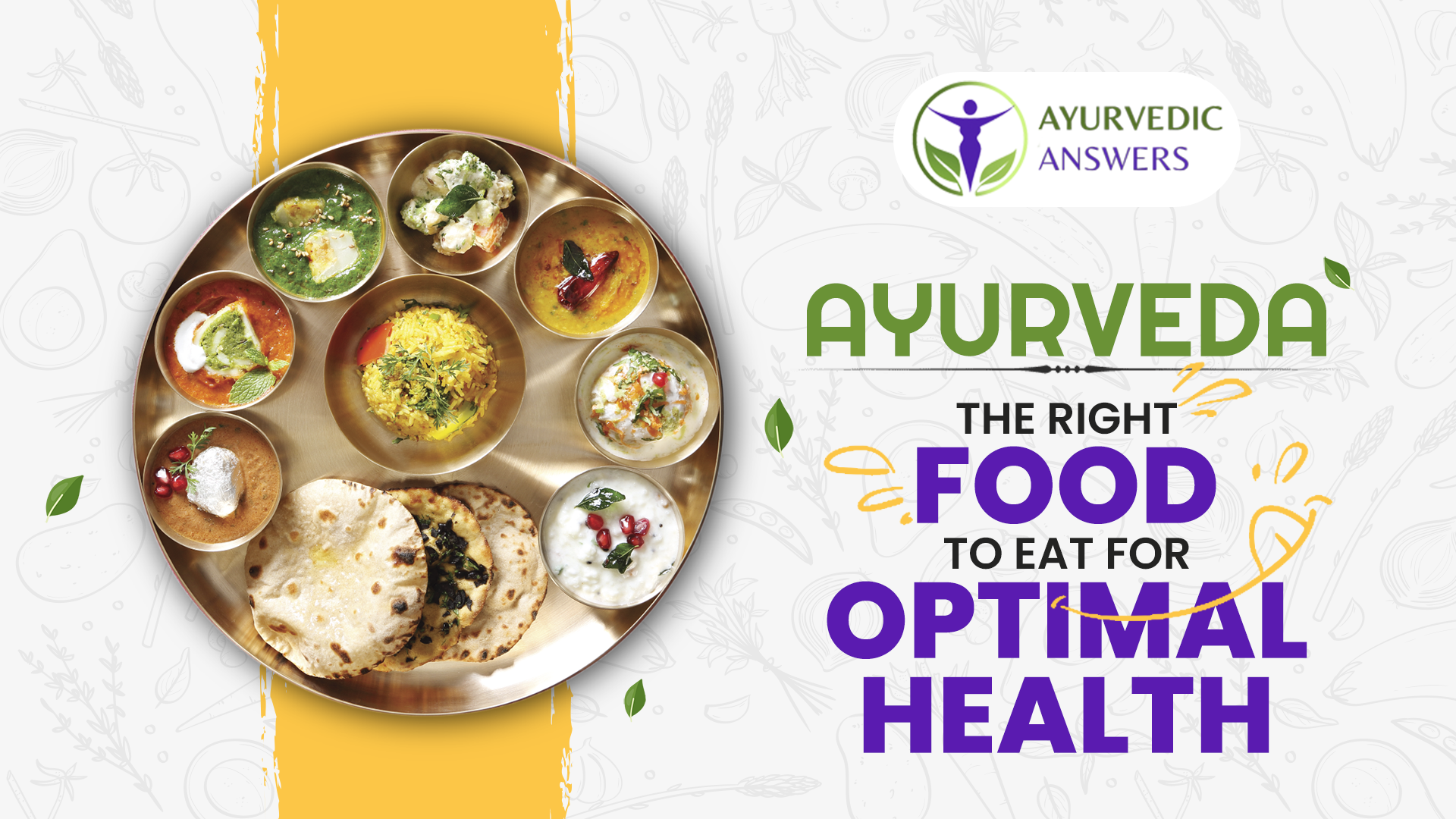What we eat significantly impacts our overall health. The right foods can help us maintaining a healthy weight, increase energy, and even prevent chronic diseases. But with so much information about food and nutrition, it can be hard to know what to eat for optimal health.
That’s where Ayurveda comes in. Ayurveda is an ancient Indian philosophy that teaches us how to live in harmony with ourselves and the world around us. The key to good health is always eating the right foods for our body type or Dosha.
Dr Hiral Bhatt is a doctor who specializes in Ayurvedic medicine. She practices at her ayurvedic clinic in Navi Mumbai, where she provides treatments and advice on how to eat correctly according to Ayurveda. We’ll explore Ayurveda guidelines for your food choices and create a healthy diet that’s perfect for you.
What is the Right Food?
There’s a lot of general debate around what constitutes “the right food.” Some people believe that all food should be healthy and unhealthy or disease-free. Others think that food should be analyzed based on its constituent parts (like proteins, carbs, etc.) rather than its overall quality.
Ultimately, the best way to understand food is by looking at its wasily identifiable qualities like heavy or light, warm or cold, dry or moist, specific tastes like sweet, sour, salty etc. These are the ways in which our body communicates with us too. For example at times we feel like having sweet food, at times hot food, sometimes crispy food. Never does our body give signs like I wish to have protein. By understanding these factors, you can make healthier choices for yourself and your loved ones without worrying about disease.
How to Eat Healthy According to Ayurveda?
There are specific rules to follow when incorporating this ancient Indian system into your everyday routine, but you can achieve significant health benefits by following these guidelines.
- Rule Number 1 – Quantity based on stomach capacity
If you’re looking to eat healthy according to Ayurveda, one of the first things you’ll need to do is learn about how the stomach works best. Imagine your stomach as divided into four parts. When you are hungry, fill two parts of your stomach with solid food (heavy food) such as roti, rice, vegetables and dal. This will help satisfy your hunger and create a sense of fullness.
Liquid foods should be had one quarter of the stomach, in small doses: water, buttermilk, or soup. These liquids help nourish your body and create a good mixture in your stomach for digestion of the solid food. Don’t fill up on these drinks all at once; instead, sip them gradually between solid meals. Leave the last quarter part of the stomach empty so that it is able to move and digest well.
- Rule Number 2 – Interval between meals
One of the most important rules is always to leave a gap of six to eight hours for your second meal. This is because prior to that the stomach is not ready nor does the body require any food in between. So avoid snacking on cooked (grains) food in between meals which can cause trouble in digestion. Fruits may be had in between if hungry.
- Rule Number 3 – Quantity based on food type and season
Many people believe that following Ayurvedic dietary guidelines will help them stay healthy. One of the most important rules is to eat heavy food in smaller quantities and light food in medium quantities. This rule applies both during the day and at night. For example, if we eat shrikhand (a type of savory pastry) and puri we should eat them in lesser quantities. However, if we eat rice and dal (a lentil soup), we can eat a medium amount.
Another vital factor to consider when following Ayurveda is the season. In summer and rainy seasons, the digestion capability of any person is lower than in other seasons. Before starting a diet based on Ayurveda principles, these factors are crucial. For example, if your daily eating habit is five rotis, it is important to be aware when this demand changes according to the season and changes made accordingly – you should feel the sensation of fullness and stop when you’ve had enough irrespective of the Quantity had.
- Rule Number 4
Each individual certainly has a different body type and needs different foods. However, a few general rules can help you stay on track. People who tend to put weight quickly should avoid regular consumption of rice and roti made from wheat flour. Instead, try rotis made with barley flour and those who are slim – should eat more rice and rotis made of wheat flour. These tips are just general guidelines – it’s essential to consult an Ayurvedic practitioner like Dr Hiral Bhatt if you have any questions about what would be best for your body type and dietary needs.
- Rule Number 5
According to Ayurveda, there are some foods you should avoid eating daily. These include meat, fish, curd, urad dal (a lentil), sprouts, and radish. While some of these foods can be taken occasionally, limiting them in your diet is best.
While specific diet plans only recommend food like raw salads or gluten-free diets, high protein diet, which may have their benefits or be helpful for particular purposes in the short term, they shouldn’t be followed long-term. This is because your body needs all nutrients to maintain balance and you can only get these from a varied diet.
Conclusion
The key to good health is balance in the mind, body, and spirit. This can be achieved by eating healthy foods tailored to your specific body type or Dosha.
Eating healthy is not only a good idea for our physical well-being but also our emotional well-being. In fact, according to Ayurveda, food provides all the necessary vitamins, minerals, and carbohydrates or proteins to our body, emotions, and feelings.
According to Ayurveda guidelines, eating the right food and maintaining proper eating habits lead to healthier lives. By following these simple measures, we can ensure that we’re getting all the nutrients that our body needs while avoiding unhealthy foods that might contribute to negative emotions like stress or anxiety and diseases. However, you can visit an Ayurvedic clinic in Navi Mumbai and consult with a doctor for further information.




